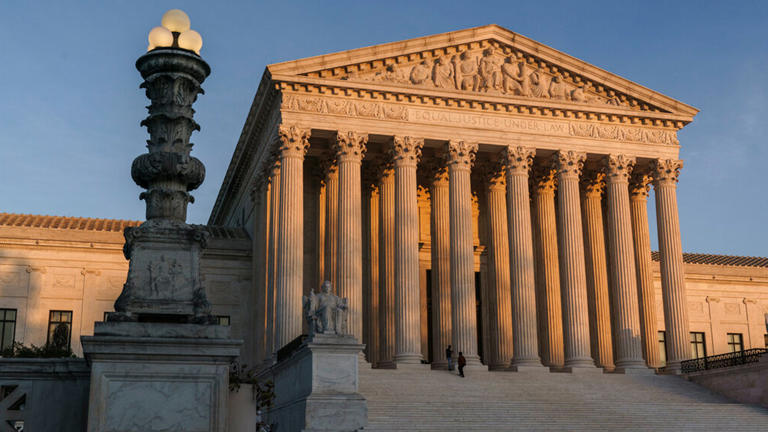Story by Lindsay Kornick • Yesterday
A New York Times guest essay by American Medical Association president Jack Resnick, Jr. blasted the legal challenge against the abortion pill mifepristone as "one of the most brazen attacks yet against reproductive health."
Earlier this month, U.S. District Judge Matthew J. Kacsmaryk issued an injunction to halt the Food and Drug Administration (FDA)’s approval of the drug. Although the pill was previously approved in 2000, the FDA made drugs like mifepristone more widely available under the Biden administration.
Many Democratic officials and medical organizations came out against the decision with Resnick calling it "a chilling attempt to intimidate patients and physicians alike" over various other drugs.
"With ever-growing anti-science aggression, disinformation campaigns and vitriol about all types of medical advancements, there is no telling where the court challenges may lead — perhaps even to widely used drugs now sold over the counter to treat pain, allergies or heartburn that happen to have been studied with fetal stem cells," Resnick wrote.

Mifepristone is at the center of a controversy after a district judge filed an injunction against FDA approval. REUTERS/Evleyn Hockstein© REUTERS/Evleyn Hockstein
Kacsmaryk’s decision was partially overturned by the 5th U.S. Circuit Court of Appeals, though it maintained restrictions for mifepristone to only be dispensed up to seven weeks and not be delivered by mail. The Supreme Court also allowed temporary access to the drug until Friday after the Department of Justice (DOJ) appealed the case.
Resnick claimed that, should the Supreme Court choose to not remove all restrictions on the drug, it would compromise "the integrity of the long-established F.D.A.-approval process and whether we want science — or ideologues — informing decisions about our individual and collective health."
"We simply cannot be a country where your access to the care you need is determined by the whims of ideologically driven judges and lawmakers without medical or scientific training. That’s why a dozen of the nation’s leading medical organizations, including the one I head, the American Medical Association, strongly oppose this politically motivated assault on patient and physician autonomy and have filed amicus briefs to make our case," Resnick wrote.

The Supreme Court allowed temporary access to the pill until Friday.
He added, "We cannot allow pseudoscience and speculation to override the substantial weight of scientific evidence from more than 100 studies and millions of patients that confirm the safety and efficacy of a drug or course of treatment."
The American Medical Association, which is one of the largest health care associations in the country, previously referred to abortion restrictions as a "violation of human rights" ahead of the Supreme Court overturning Roe v. Wade in June.
"Responding to the growing threat of over-policing and surveillance of reproductive health services, the nation’s physicians and medical students at the AMA Annual Meeting adopted policy recognizing that it is a violation of human rights when government intrudes into medicine and impedes access to safe, evidence-based reproductive health services, including abortion and contraception," the statement read.

The American Medical Association referred to abortion restrictions as a "violation" of human rights.
The American Medical Association also called for the DOJ to investigate "disinformation campaigns" against hospitals providing transgender surgeries for minors.
No comments:
Post a Comment